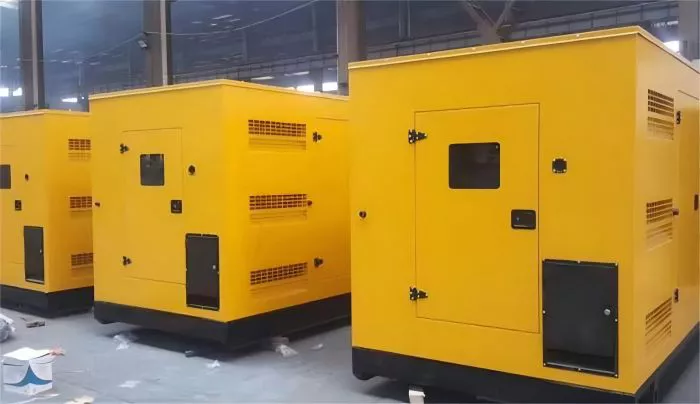Choosing the right diesel generator involves assessing various factors to ensure it meets your specific power needs, budget, and operational requirements. This guide provides an in-depth look at the key considerations for selecting the most suitable diesel generator for your application.
1. Determine Your Power Requirements
1.1 Assess Power Needs
Calculate the total wattage required for your application, including the starting and running watts of all connected equipment. Consider both continuous and peak power demands to ensure the generator can handle load surges.
1.2 Consider Future Expansion
Anticipate potential future power needs and choose a generator with a slightly higher capacity than your current requirements. This allows for flexibility and avoids overloading the generator.
2. Evaluate Generator Types
2.1 Portable vs. Standby Generators
Portable generators are suitable for temporary or occasional use, such as during outdoor events or emergencies. They offer mobility and can be moved to different locations as needed. Standby generators, on the other hand, are designed for continuous use and automatic operation during power outages. They are ideal for critical applications and residential backup, offering a higher level of reliability and convenience.
2.2 Open vs. Enclosed Generators
Open generators are typically less expensive and suitable for outdoor use in non-sensitive environments. They lack soundproofing and weather protection, making them more exposed to external conditions. Enclosed generators feature soundproof enclosures and are ideal for locations where noise reduction and protection from the elements are important. They offer a quieter operation and are better suited for residential or commercial settings.
3. Fuel Efficiency and Runtime
3.1 Fuel Consumption
Consider the fuel efficiency of the generator, as it impacts operating costs and environmental footprint. A generator with efficient fuel consumption rates will reduce operational expenses and minimize environmental impact. Look for models that offer a good balance between power output and fuel usage.
3.2 Runtime
Evaluate the generator’s runtime on a full tank of fuel. A longer runtime is beneficial for extended power outages or continuous operation without frequent refueling. Generators with larger fuel tanks or more efficient fuel consumption can provide extended runtime and reduce the need for frequent maintenance.
4. Noise Levels
4.1 Decibel Rating
Check the generator’s decibel rating to determine its noise level. For residential areas or noise-sensitive environments, choose a generator with a lower decibel rating or an enclosed design for quieter operation. Noise levels are an important consideration, especially if the generator will be used in proximity to living spaces or areas where noise could be disruptive.
4.2 Noise Reduction Features
Some generators come with noise reduction features such as soundproof enclosures or mufflers. Consider these features if noise reduction is a priority for your application. Soundproof enclosures can significantly reduce operational noise, making the generator more suitable for use in noise-sensitive areas.
5. Maintenance and Serviceability
5.1 Routine Maintenance
Select a generator with accessible maintenance points and clear instructions for routine servicing. Regular maintenance is essential for the longevity and reliability of the generator. Ensure that the generator is designed for easy access to components that require periodic maintenance, such as oil filters and air filters.
5.2 Warranty and Support
Check the warranty period and service support offered by the manufacturer. A comprehensive warranty and reliable support services are important for addressing any issues that may arise. Choose a generator from a manufacturer known for its customer service and support to ensure you receive assistance when needed.
see also: Is It Safe to Refuel a Diesel Generator While Operational?
6. Brand and Reliability
6.1 Manufacturer Reputation
Research reputable brands known for producing reliable and high-quality diesel generators. Customer reviews and industry reputation can provide insights into the generator’s performance and reliability. Look for brands with a history of producing durable and well-supported products.
6.2 Product Certification
Look for generators with certifications from recognized standards organizations. Certifications ensure that the generator meets safety, performance, and environmental standards. Certified generators are more likely to adhere to industry best practices and provide reliable performance.
7. Budget Considerations
7.1 Initial Cost
Consider the initial purchase cost of the generator and compare it with your budget. Higher-capacity and advanced models may come with a higher price tag, but they offer additional features and reliability. Ensure that the cost of the generator aligns with your financial constraints and expected benefits.
7.2 Operating Costs
Factor in ongoing operating costs, including fuel, maintenance, and repairs. Choose a generator that balances initial cost with long-term operating expenses for cost-effective ownership. Evaluate the total cost of ownership, including fuel consumption and maintenance requirements, to determine the most economical option.
Conclusion
Choosing the right diesel generator involves a careful evaluation of your power needs, generator types, fuel efficiency, noise levels, maintenance requirements, brand reputation, and budget. By considering these factors, you can select a diesel generator that meets your specific requirements and provides reliable power for your application. Proper research and planning will ensure that your investment in a diesel generator delivers optimal performance and value over time.
Related topics:
- What Size Diesel Generator Do I Need?
- Using Heating Oil in Diesel Generators: Feasibility and Considerations
- How Does a Diesel Generator Works?

